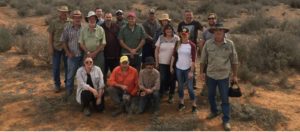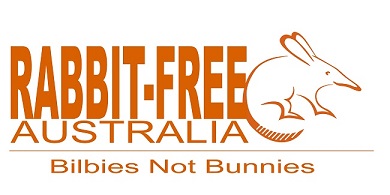The Victorian Rabbit Action Network (VRAN) has been internationally acclaimed as a successful rabbit management program. Two recent social science papers describe their approach and some of the theory behind it.
Key points: The Victorian Rabbit Action Network:
- Moved away from a top-down, regulatory (roles-based) approach.
- Defined rabbit management as a ‘wicked problem’ needing a holistic response.
- Sought community-led, government supported, collective-action programs, instead of seeking a uniform solution across all situations.
Historically, there has been a strong reliance on public institutions to manage rabbits. State governments focused on legislation to regulate the behaviour of land owners, the provision of information, and sometimes grants or subsidies
Such processes can marginalise the knowledge and preferences of community members; yet coordination and collaboration among neighbours, of all kinds, is essential if control programs are to be effective.
Through VRAN, rabbit management was recast as a ‘wicked problem’ – one with no single preferred solution, responsibility sitting across multiple actors, and not even a universally accepted definition of the issue. Collaborative strategies are particularly useful for tackling wicked problems. So too is ‘systems thinking’ – viewing problems from different perspectives, to get a more holistic understanding and generate a series of broad, community-led, strategies for collective action.
The success of VRAN has been associated with a shift away from a regulation and enforcement focused model, towards a community-led, government-supported approach, which has enabled the collective planning, resourcing, and implementation of rabbit management programmes.
To learn more about the VRAN approach, see:
- ‘Public sector responses to complex socio-ecological issues—no silver bullets for rabbits.’ (Reid M.J. et.al, 2019) in Public Money & Management.
- ‘Political economics, collective action and wicked socio-ecological problems: A practice story from the field.’ (Adams L.B. et.al., 2019) in Gateways: International Journal of Community Research and Engagement.
- VRAN Website.
- VRAN Blogs.

Community-led, collaborative action. Photo from a ‘The Victorian Connection’ article by Georgina Jerums (2019)
